Downregulation of microRNA-34 induces cell proliferation and
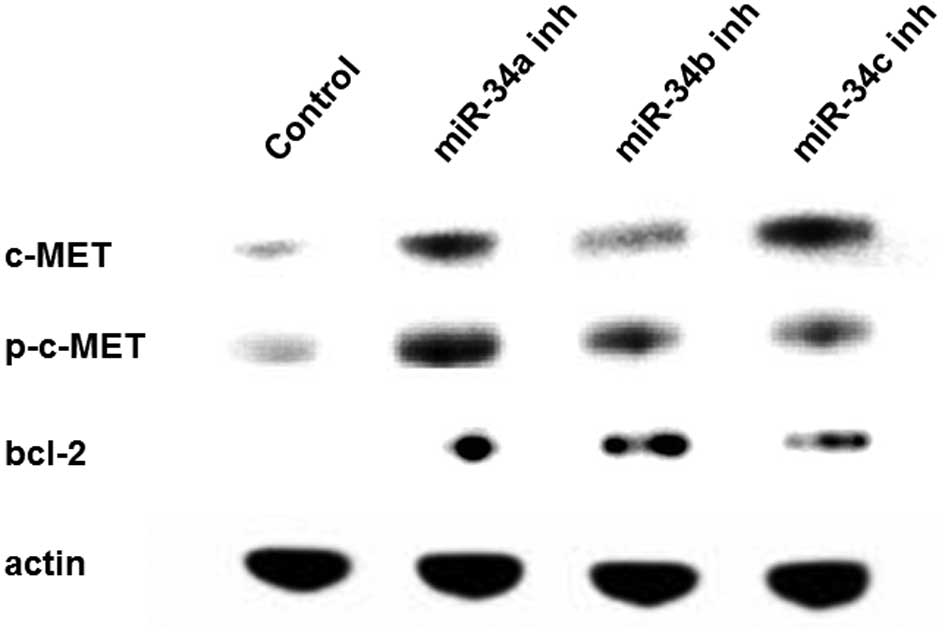
Malignant mesothelioma (MM) is an aggressive tumor with a dismal prognosis, and the molecular alterations involved in this disease remain unknown. We previously reported that microRNA-34s (miR-34s) are methylated and downregulated in MM and may play an important role in the carcinogenesis of MM. In this study, we downregulated miR-34s in human mesothelial cells to investigate the cellular effect of miR-34 knockdown. For the cell study, we used LP-9, a human mesothelial cell line, and three human primary-cultured mesothelial cell lines. RNA-based miR-34a, -34b and -34c inhibitors were transfected into these cells, and their effects on proliferation and invasion were evaluated. A scramble RNA oligonucleotide was used as a control. The protein expression status was estimated using western blotting. After miR-34 inhibitor transfection, miR-34a, -34b and -34c were downregulated in all the examined mesothelial cell lines. miR-34 inhibitor transfection significantly increased cell proliferation in all of the mesothelial cell lines, compared with the scramble control. The invasive ability also increased in the miR-34 inhibitor transfectants, compared with the scramble control, in the LP-9 cell line. Western blotting confirmed the upregulation of c-MET, phospho-c-MET, and bcl-2 proteins in LP-9 cells after miR-34 inhibitor transfection. In conclusion, our study showed that the downregulation of miR-34s induced an oncogenic phenotype in non-malignant mesothelial cells. The present study, together with the results of our previous report, strongly suggest that miR-34s play an important role in the early carcinogenic process involved in the transformation of human mesothelial cells to MM.

Restoring microRNA-34a overcomes acquired drug resistance and disease progression in human breast cancer cell lines via suppressing the ABCC1 gene
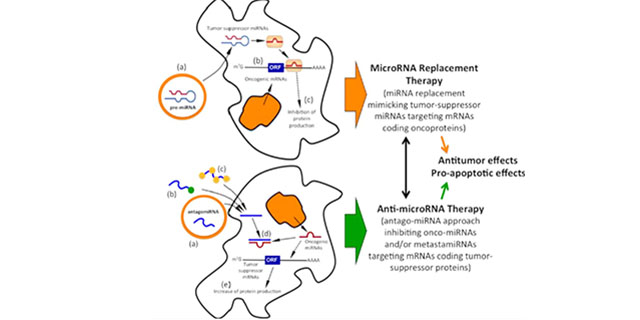
Promising therapeutic potential of tumor suppressor microRNAs for malignant pleural mesothelioma
The Expression of miR-34c-5p Induces G0/G1 Cell Cycle Arrest and Apoptosis in SW480 Colon Cancer Cell, IJ Pharmaceutical Research

The role and mechanisms of action of microRNAs in cancer drug resistance, Clinical Epigenetics

Cancers, Free Full-Text
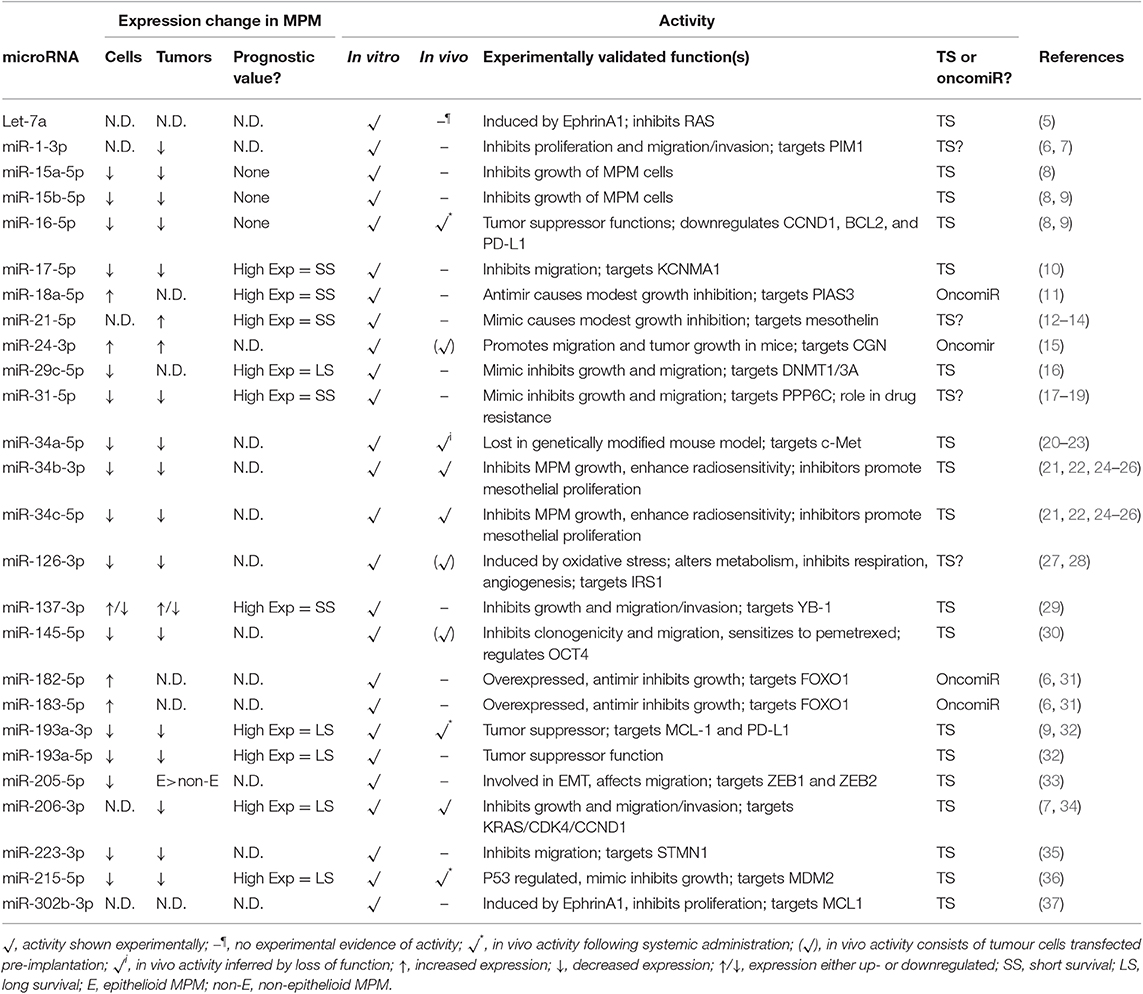
Frontiers Manipulating microRNAs for the Treatment of Malignant Pleural Mesothelioma: Past, Present and Future

miR‐30d is related to asbestos exposure and inhibits migration and invasion in NCI‐H2452 cells - Ju - 2017 - FEBS Open Bio - Wiley Online Library

miR-340: A multifunctional role in human malignant diseases

microRNA - Wikipedia
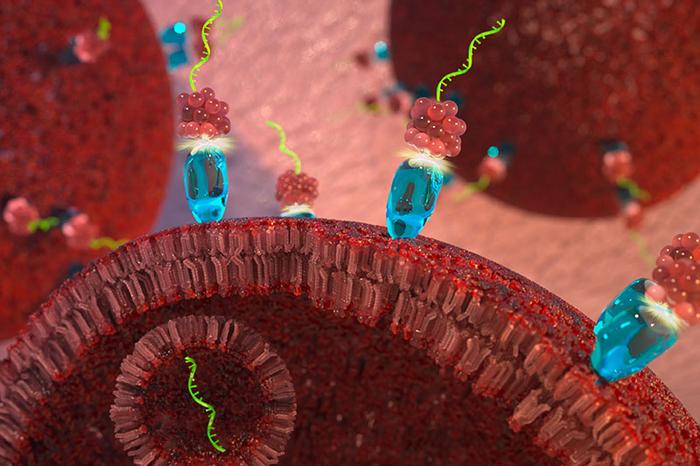
First-in-Class Targeted MicroRNA Therapy Blocks Tumor Growth in Mice

Cancers, Free Full-Text
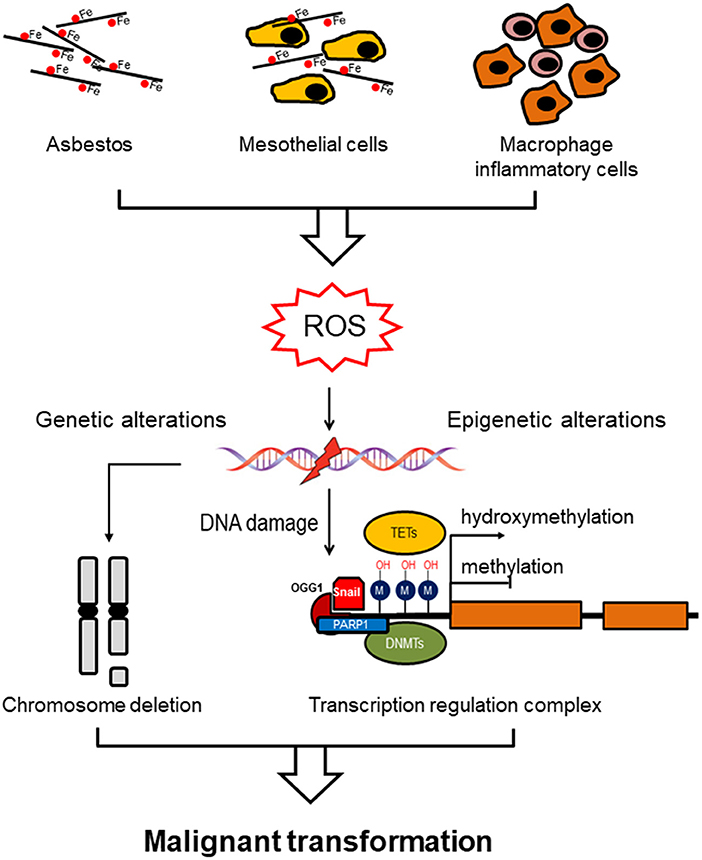
Frontiers Epigenetic Regulation of miRNA Expression in Malignant Mesothelioma: miRNAs as Biomarkers of Early Diagnosis and Therapy

Sirolimus induces apoptosis and reverses multidrug resistance in human osteosarcoma cells in vitro via increasing microRNA-34b expression

Alternative mechanisms of miR-34a regulation in cancer

microRNA-mediated cell-to-cell communication via extracellular






